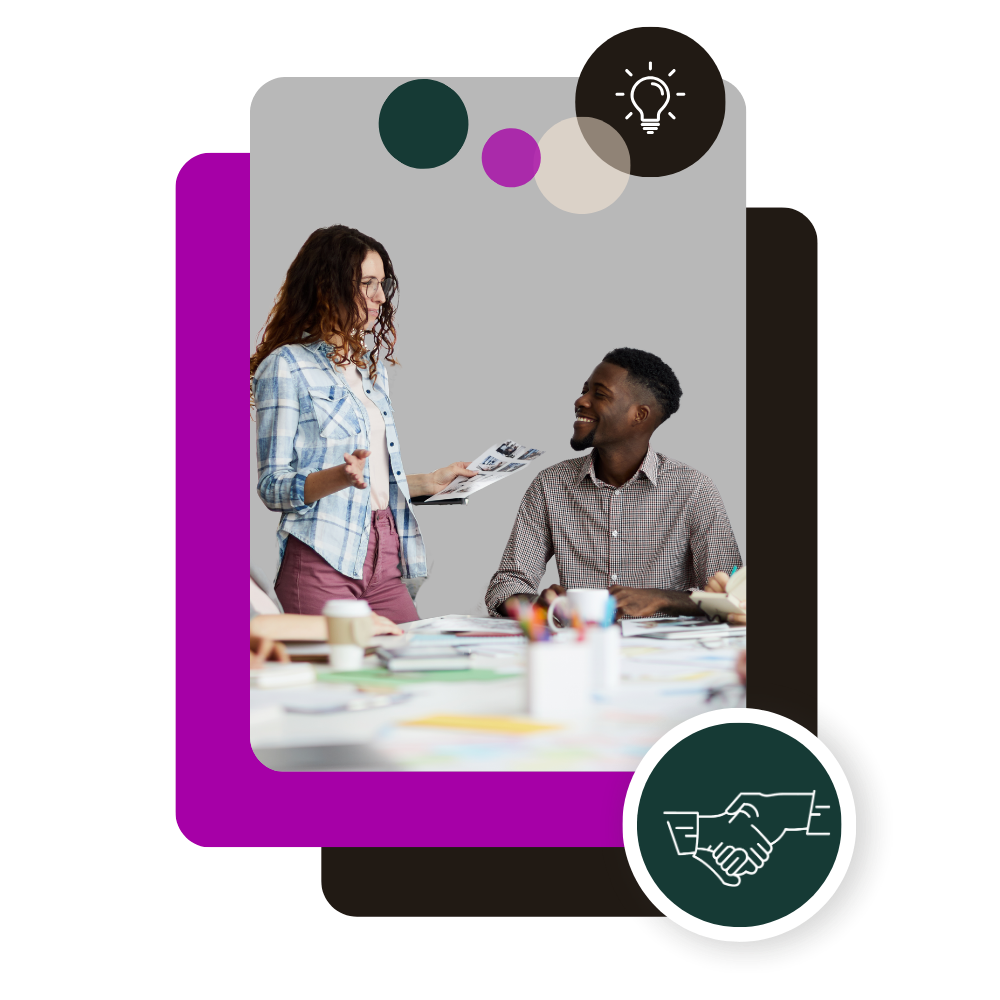build high-trust teams
Create high-trust teams where collaboration and performance thrive by addressing emotional dynamics.
.jpg)

Emotions Drive Team Performance
Strong teams don’t happen by chance. Many organizations struggle with miscommunication, disengagement, and lack of collaboration, limiting their ability to perform. Research shows that psychological safety—the belief that a team is a safe space for interpersonal risk-taking—is the foundation of high-performing teams. Yet according to McKinsey research, only about 26% of leaders create psychologically safe environments for their teams. Emotions are at the core of every team dynamic, influencing trust, collaboration, and overall performance.
If your team improves emotional intelligence, they perform 46% better than teams that don’t.
Our programs provide science-backed tools that help both leaders and teams develop self-awareness, regulate emotions in high-stakes situations, harness emotions as a catalyst for deeper connection, innovation, and resilience.
the benefits of building high-trust teams
Through this training, your organization will:
improve team collaboration
increase individual and team productivity
strengthen engagement and retention
turn conflict into opportunity
Learn strategies to navigate differences and turn them into opportunities.

Build trust between leaders and teams
While leaders set the tone, every team member contributes to the overall culture. Our programs address both perspectives, ensuring a holistic approach to team performance.
We offer two programs designed to meet the unique needs of leadership and individual contributors. While using both programs together maximizes impact, each can also be delivered independently.
Creating High-Trust Teams
Leadership Program
Empower leaders to build trust, enhance communication, and create a psychologically safe environment for better performance.
Performing as a High-Trust Team
Individual Contributor Program
Equip team members with the skills to collaborate effectively, communicate with empathy, and build a culture of learning and trust.
Leadership Program
Creating High-Trust Teams
Creating high-trust teams starts with leaders who understand how trust is built in daily interactions. This program introduces a simple, practical model for team-based trust and equips leaders to strengthen it through everyday choices.
Leaders will learn to recognize signals that shape trust, apply skills that encourage open dialogue, and foster conditions where teams feel safe, aligned, and growth-oriented. Through research-based frameworks, interactive exercises, and reflection, participants will develop concrete strategies to build resilient teams that collaborate, learn, and deliver together.

leadership program logistics
We recommend a 6-week blended learning journey for this program to maximize learner engagement and skill application. For organizations that want to integrate Creating High-Trust Teams content within a larger program in their organization, we recommend using the microcourses and live learning session content only.
audience
leaders
participants
up to 24 per cohort
format
blended self-paced and live (in person or virtual) learning
duration
6-week learning journey, with four hours of live learning
Self-paced Learning
Examine how personal perspectives and biases shape the signals leaders send and explore ways to respond in ways that build trust.
Live Session 1: Building the Foundation for High-Trust Teams
Spot signals of psychological safety and belonging in your teams
Learn how to facilitate inclusive discussions to foster greater trust in group meetings
Live Session 2: Strengthening Clarity and Building a Learning Culture
Key modules include:
Apply a simple learning culture process to strengthen growth and adaptation
Personalized Application Challenges
Leaders receive 3 weeks of content application suggestions covering each dimension of the Trust Triangle.
Individual Contributor Program
Performing as a High-Trust Team
Creating a culture of psychological safety isn’t just a leader’s job—it’s a team effort. Every team member plays a role in fostering an environment where colleagues feel safe to share ideas, take risks, and learn from mistakes.
Through interactive exercises, real-world simulations, and discussions, participants will build emotional awareness to shift from a failure-avoidance mindset to a learning-focused approach. They’ll develop practical skills in mindful listening, empathetic communication, and inclusive collaboration, ensuring they actively contribute to a culture of trust and innovation.

individual contributor program logistics
We recommend a 6-week blended learning journey for this program to maximize learner engagement and skill application. For organizations that want to integrate Performing as a High-Trust Team content within a larger program in their organization, we recommend using the microcourses and live learning session content only.
audience
individual contributors
participants
up to 24 per cohort
format
blended self-paced and live (in person or virtual) learning
duration
6-week learning journey, with three hours of live learning
Self-paced Learning
Prior to live sessions, participants engage in two short microcourses (10 min. each) to cover key concepts in the course. Microcourses include:
Live Session 1: Understanding Psychological Safety
Barriers to Psychological Safety
Live Session 2: Building a Learning-Focused, High-Trust Team Culture
Personalized Application Challenges
Each participant can choose from a personalized list of application challenges to apply what they’ve learned. Participants apply these challenges over four weeks, with each taking about 30 minutes to complete.

